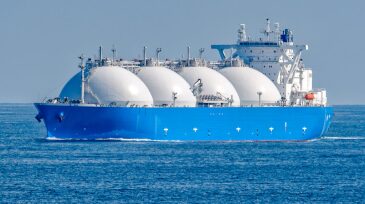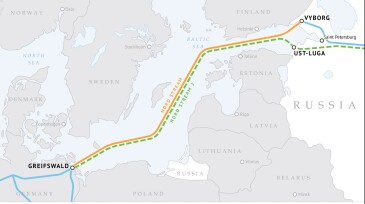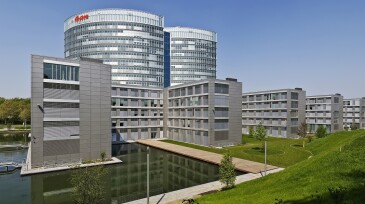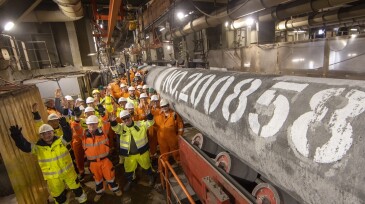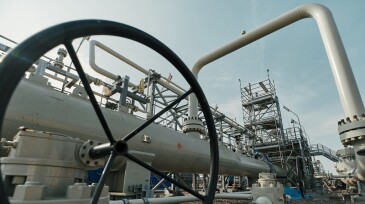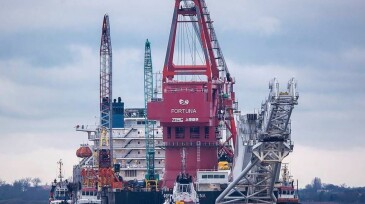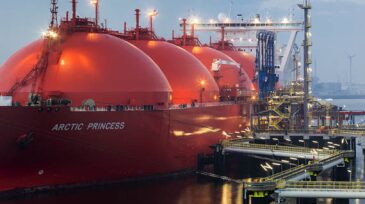Germany
-
The proposed LNG terminal will expand Germany's alternatives for gas supply and reduce its dependence on Russian imports.
-
The pipeline project was completed in September but whether it will flow is now as uncertain as ever as both Germany and the US seek to shut the project down.
-
The European Commission is expected to allow investments flowing into natural gas and nuclear energy projects to be considered as “green” investments, assuming certain criteria are met. Germany and France, however, differ in their approaches to renewables. While Germany has abandoned nuclear power in favor of natural gas, France continues to rely on nuclear.
-
Russia’s Nord Stream 2 pipeline is now complete, although gas will not be flowing until regulators issue various approvals, expected by the end of the year.
-
The second of Nord Stream 2’s twin pipelines is scheduled for completion in August, with the first line having been finished and prepped for filling earlier this month. Politically, Nord Stream 2 has been nothing less than a high-stakes poker game among nations to achieve geopolitical goals.
-
The Nord Stream 2 consortium is laying pipe in Danish waters despite US sanctions. A deal is anticipated that will allow the pipeline to be built if Germany defends Ukraine’s interests as a transit state for Russian gas.
-
Four companies are now under consideration for the EPC deal, which will include the building of a jetty with two berths for LNG carriers. Located near the Port of Hamburg, Germany's first LNG terminal is scheduled to start up by the end of 2022.
-
At a water treatment plant for an onshore oil field in northern Germany, formaldehyde injection was started in 2015 as a biocide. The goal of this study was to understand the chemical parameters and microbial distribution in the water system and whether formaldehyde injection was effective.
-
After a year of field testing, a new type of biopolymer developed by Wintershall, Germany’s largest oil and gas producer, is showing promise as an effective enhanced oil recovery (EOR) tool in one of the country’s longest producing oil fields.
Page 2 of 2

